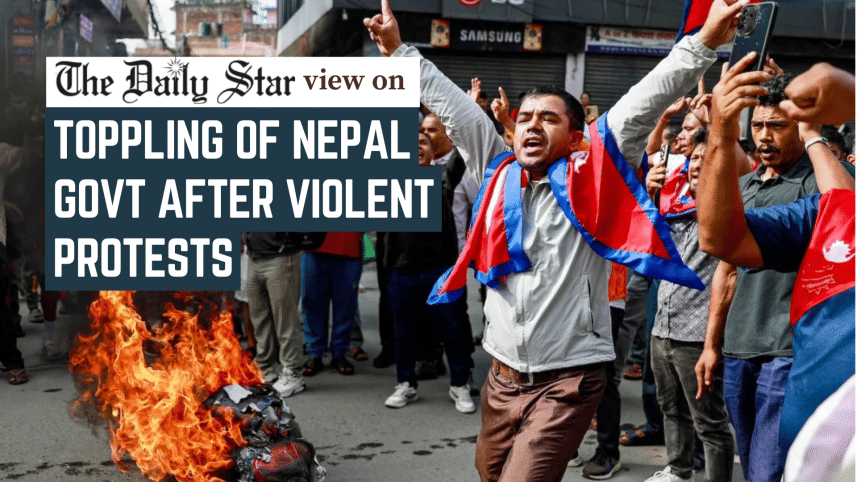Nepal’s youth have given their verdict

We are amazed by how Nepal's government fell as Prime Minister K P Sharma Oli resigned amid massive youth-led protests against a social media ban and government corruption. Reportedly, last week, the Oli-led government imposed a ban on 26 social media and messaging platforms, including Facebook, Instagram, LinkedIn, YouTube, WhatsApp, and X. In response, thousands of mostly Gen Z protesters took to the streets across at least seven cities, including Kathmandu. What began as a protest against a social media ban quickly evolved into a nationwide movement demanding systemic change.
For years, young Nepalis have reportedly faced limited job opportunities, forcing millions to seek work abroad. This economic frustration, combined with growing anger over the lavish lifestyles of political elites, sparked widespread protests. The term "nepo kids"—used to mock the privileged children of top officials—went viral on social media, fuelling public outrage. Thus, even after the ban was lifted, the protests spread across the country, exposing deeper problems such as corruption, inequality, economic stagnation, elite privilege, and political instability.
The events in Nepal are, in many ways, similar to Bangladesh's uprising that led to Sheikh Hasina's fall last year. Here, protests over job quotas turned into a movement to oust the government. In both cases, public dissatisfaction with systems that ignored the rights and demands of ordinary citizens and favoured those in or connected to power sparked protests that ultimately led to the fall of the governments. While Nepal at least managed to control the violence relatively quickly, with clashes between security forces and protesters resulting in 19 deaths so far, Bangladesh's uprising saw over 1,400 deaths and thousands injured.
The Nepalis are now celebrating the fall of their government, but what comes next? Analysts in the country stress the urgent need for a transitional arrangement that includes leaders who still hold public trust, especially among the youth who led the movement. As a neighbour, we hope that stability is restored in Nepal soon, people's demands are respected, and the aspirations of the youth prioritised.
There are also lessons to be drawn from this recent cycle of events. When governments ignore rising inequality and corruption, and discrimination in society soars, people eventually rise up. No system can go unchallenged. In Nepal, Gen Z is leading the movement, showing that in the absence of a functional democracy, public unrest is inevitable. Therefore, to prevent such upheaval, governments must respond to the needs of their citizens, and the latter must have the ability to shape their own future.



 For all latest news, follow The Daily Star's Google News channel.
For all latest news, follow The Daily Star's Google News channel. 
Comments